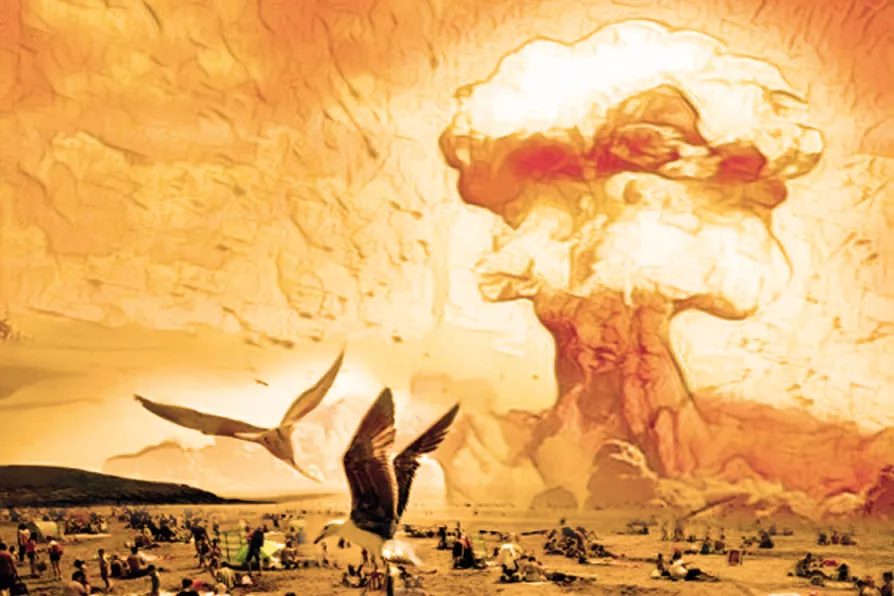The Carpathia isn’t coming to rescue this government still swimming in the mire, writes LINDA PENTZ GUNTER


AS we sit back in the sunny weather with family and friends and think of possible summer holidays, we are forced to think these days of the wars faced by people around the world and, if we read into the background of these human disasters, we can also be aware of the ongoing potential for nuclear armageddon growing in the background.
Following the decades-long efforts to halt and reverse an arms race involving the world’s deadliest weapons, we can witness Putin sanction the invasion of a non-nuclear neighbour followed by then making increasing nuclear threats.
Meanwhile, the Republican Party’s Senator Tom Cotton has introduced legislation calling for the US to withdraw from the agreement with Russia on limiting “strategic offensive arms” known as the New Start Treaty, and increase the US’s already massive nuclear arsenal.
Then you’ve got the British government, which in 2021 under Boris Johnson blithely announced the lifting of the cap on the number of Trident nuclear warheads in its arsenal from 180 to 260, despite it remaining a signatory state of the Non-Proliferation Treaty and Article 6, which make such actions illegal under international law.
While all of this happens, at the recent meeting of the G7 nations in Japan’s Hiroshima, the gathered leaders spent a whole 30 minutes laying wreaths and posing for photographs before failing to agree on a “no first use” policy for nuclear-armed states to sign up to. All of this while there are already 13,000 nuclear warheads in the world, most of which are significantly more powerful than the bomb dropped on Hiroshima on August 6 1945.
Disgracefully, to a man and woman they have no intentions of genuinely working towards a nuclear-weapons-free world.
Meanwhile, the blasé approach here is such that not only does Westminster intend to spend many billions of pounds more on an expansion of weapons of mass murder at the Trident nuclear arsenal at Faslane naval base (within 40 miles of half of Scotland’s population), but the number of serious nuclear-site events there rose from seven in 2019 to 13 in 2021.
Indeed, the MoD logged 460 safety incidents of all kinds at the two British nuclear bases from 2019 to 2021. With a further 117 low-potential releases, that sets an adverse trend.
So if we don’t get blown away before one of these splendid sunsets, we could still be poisoned by radiation leaks due to equipment failures or human errors. Enjoy your summer!
Bill Kidd is MSP for Glasgow Anniesland.

BILL KIDD MSP says increasing Britain’s nuclear arsenal at this time is dangerous and expensive folly

For 80 years, survivors of the Hiroshima and Nagasaki atomic bombings have pleaded “never again,” for anyone. But are we listening, asks Linda Pentz Gunter












